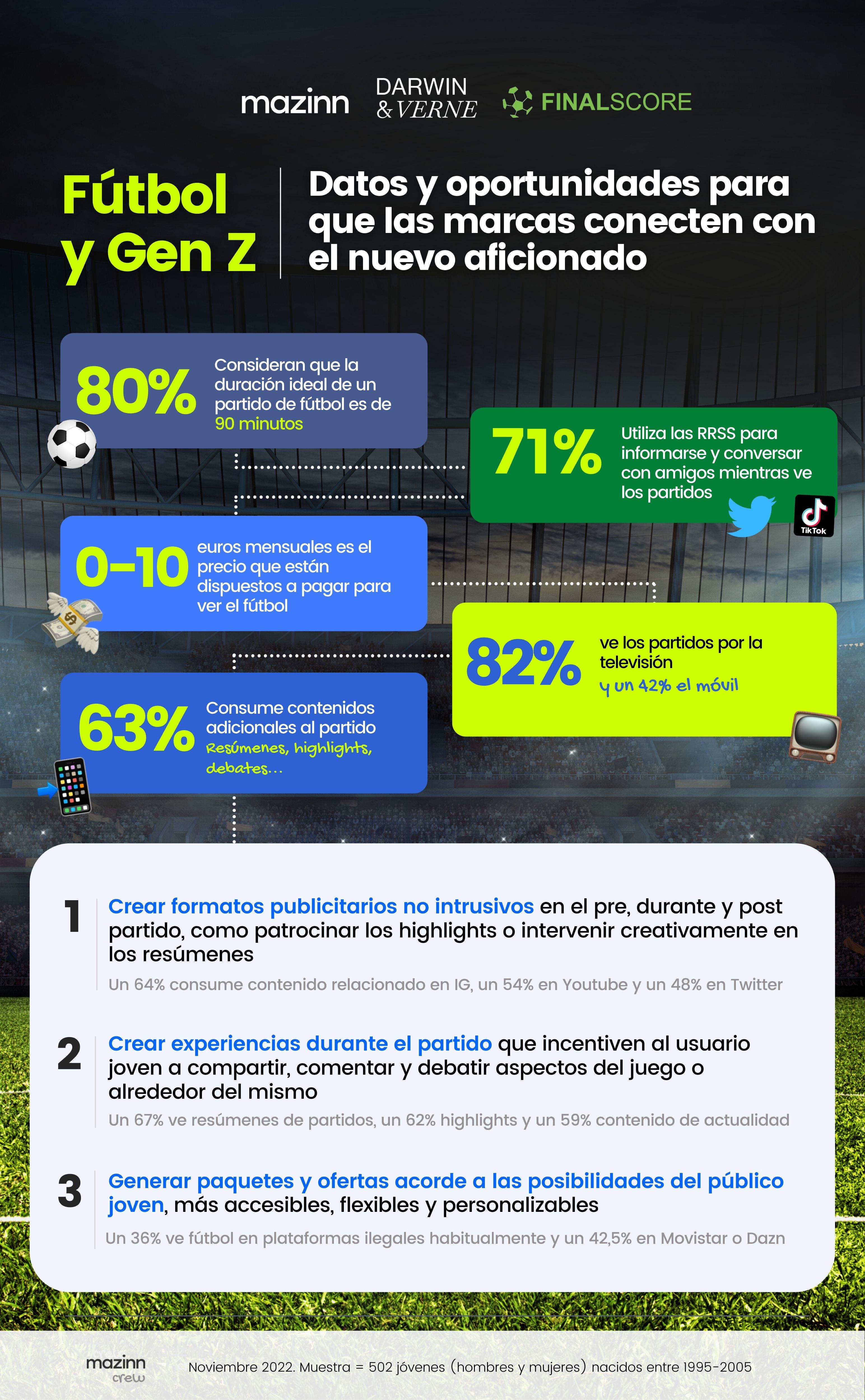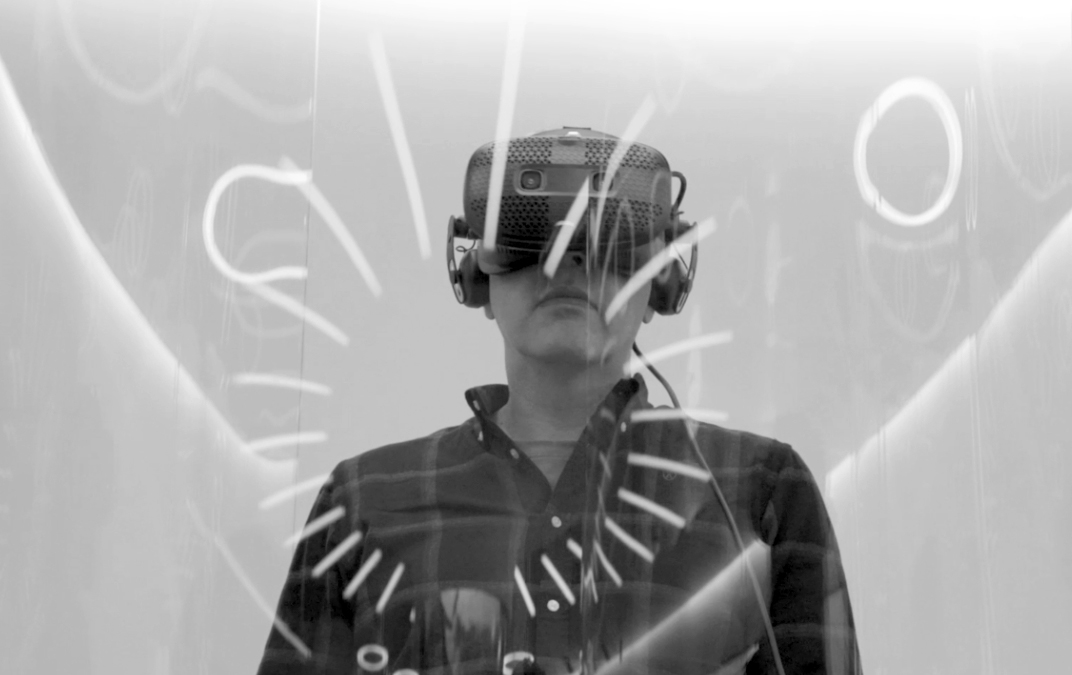Generation Z and soccer: 90-minute matches, low cost and mobile interaction
- Date
- Written by Darwin & Verne
The Qatar World Cuphas started. Millions of fans around the world will be attentive to the most important soccer competition of the year. A scenario that many brands will take advantage of to try to reach their target audience. But what role will brands play young people as an audience of the event? How would you like to watch soccer? What are your viewing habits? What improvements would you like to see in the broadcasts?
A study of Mazinn, consulting firm specializing in Generation Z, integrated into our structure, with the collaboration of the consulting firm FinalScore, specialist in sports marketing, reveals that the 80% of Generation Z likes to watch matches of football of 90 minutes. And that it usually does it by interacting with a mobile phone at the same time. In fact, the vast majority of them (71.5%) use a social network while watching a match: Twitter to view comments, additional information to the broadcast or to check results of other matches; WhatsApp, to comment on the play with acquaintances and Instagram and TikTok, for content generally unrelated to the match, at half-time or as a means of distraction.
The report also reveals that the Gen Z consumes a lot of football content apart from the broadcasting of the match itself (pre- and post-match). 67.5%, summaries of matches; 62.2%, highlights; 59.4% content of rumours and current affairs, and 41.6%, chats or debates.
The social channels where young people consume the most football-related content are Instagram (63,7%), YouTube (53,7%) and Twitter (48,1%). Twitcha channel even more reserved for certain young communities, use it to watch talk shows or previews (20.5%) or to consume streamings of the FIFA video game (9.8%). And TikTok for viewing football highlights (41.9%), clips of talk shows or journalists' testimonies (27.1%) or analysis of plays or tactics (21.8%).
The report also points out that 55.4% occasionally watch football through free-to-air television and 36.1% through illegal platforms (IPTV being the most frequently mentioned). Among those who go to paid platforms, 43.8% use Movistar and 41.4% use Dazn.
As far as the devicesare concerned, Generation Z continues to consume football content mainly through the TV (81.9%), while 39.8% uses the computer and 42.4%, smartphone.
Regarding their preferences for competitions, the study points out that 65.9% prefer to watch matches of the Champions, 26,1% of La Liga and 8% of the Copa del Rey.
Requests and improvements
When it comes to pricing, Generation Z would like to be able to consume soccer for less than 10 euros per month (36,1%) or for free (34,7%). In fact, 61.5% rate the current prices for watching games with a score of less than 3, on a scale of 0 to 10 (0 being a "very negative" rating).
The report also details the changes that this generation believes should take place in the broadcasting of soccer events. The Z's believe that the journalists and commentators should improve their broadcasts, "providing interesting details about the game to help viewers better understand what is happening and become more involved in it. They also call for "real, neutral journalists, not ex-players of one of the participating teams. They also call for moments of commentary in a more informal tone and natural, to connect more with viewers by changing the way they narrate and comment on the games.
In addition, young people are missing more free soccer. "Before, La1 broadcast Premier League and Champions League matches". Although they wouldn't mind paying more for a service that offers soccer, if the service was Netflix or Amazon Prime.
Other requests of Generation Z are to be able to enjoy parallel entertainment apart from the match. Such as, for example, having a omnichannel issuance that allows them to listen to what referees, bench and coaches are saying.
The study was based on a survey in which 502 young people between the ages of 17 and 27 from all over Spain participated between November 11 and 16, 2022.


